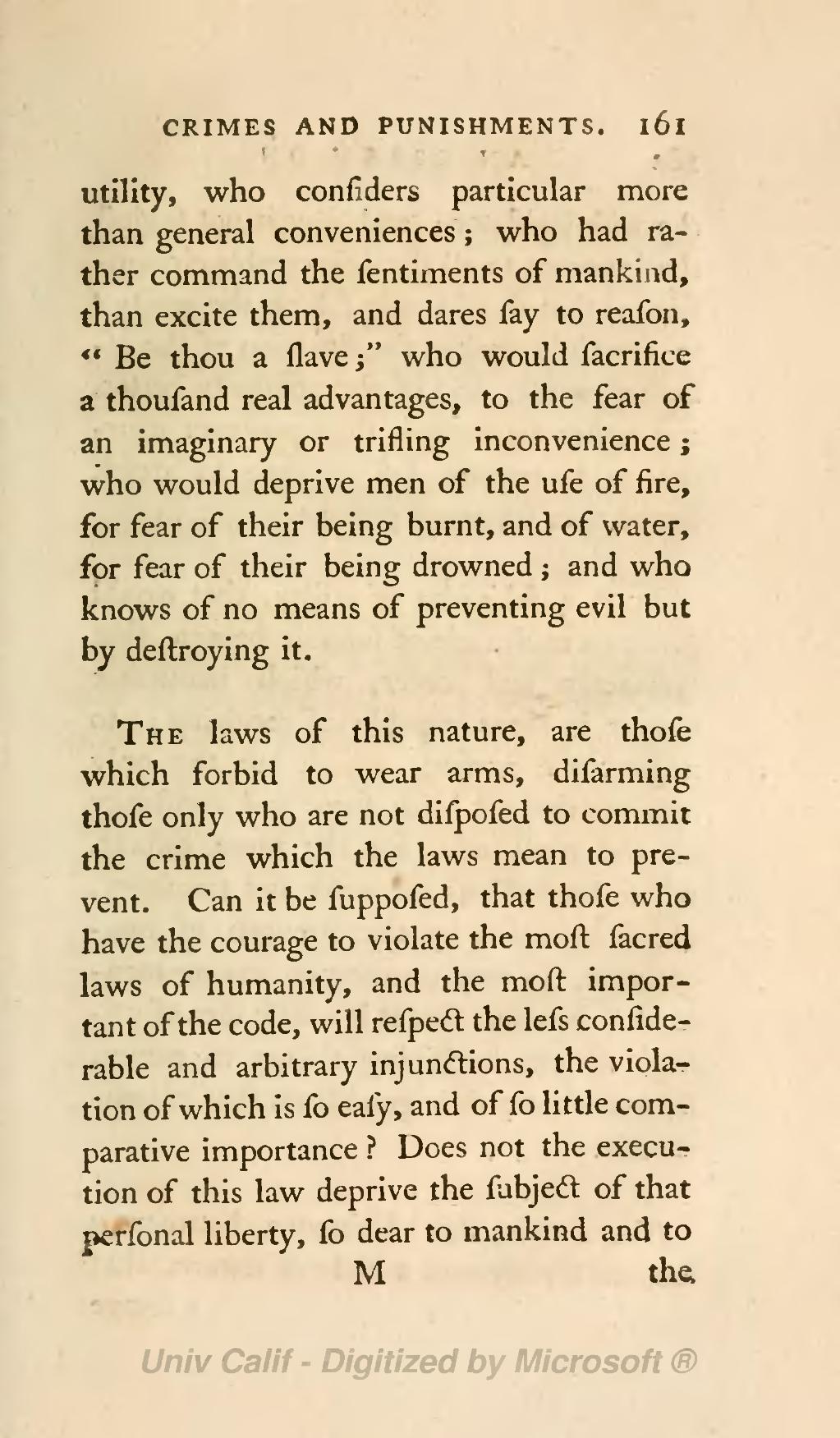utility, who considers particular more than general conveniences; who had rather command the sentiments of mankind than excite them, and dares say to reason, “Be thou a slave;” who would sacrifice a thousand real advantages to the fear of an imaginary or trifling inconvenience; who would deprive men of the use of fire, for fear of their being burnt, and of water for fear of their being drowned; and who knows of no means of preventing evil but by destroying it.
THE laws of this nature, are those which forbid to wear arms, disarming those only who are not disposed to commit the crime which the laws mean to prevent. Can it be supposed, that those who have the courage to violate the most sacred laws of humanity, and the most important of the code, will respect the less considerable and arbitrary injunctions, the violation of which is so easy, and of so little comparative importance? Does not the execution of this law deprive the subject of that personal liberty, so dear to mankind and to
